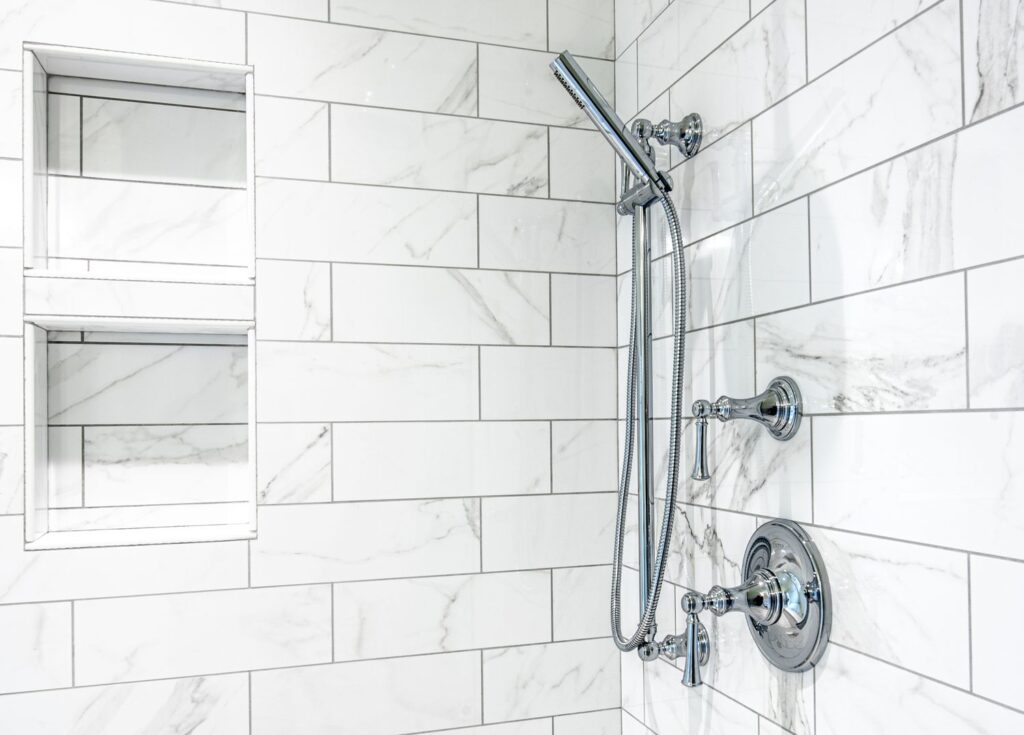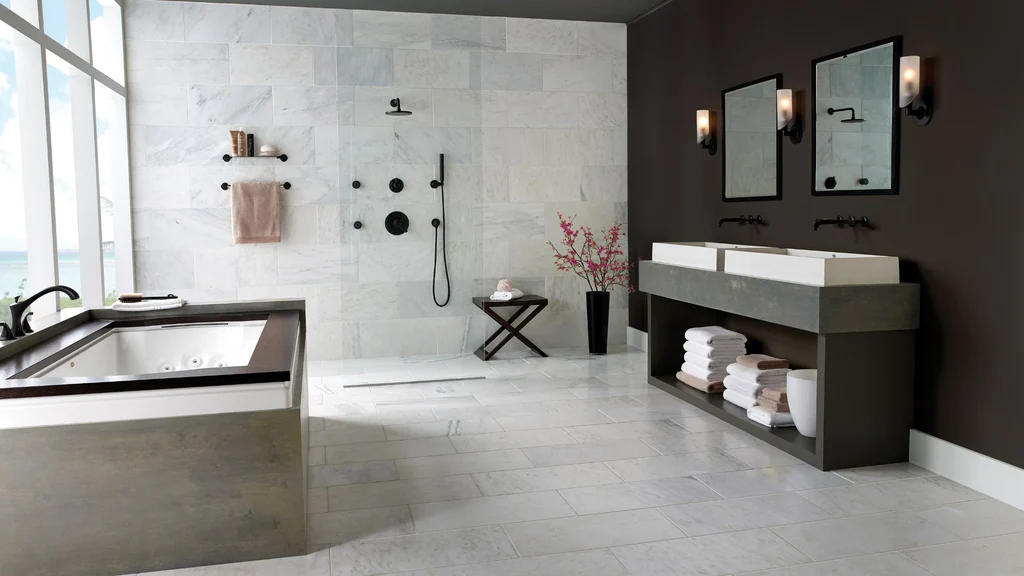Choosing the right shower tile is not just a matter of beauty. Moisture resistance, resistance to contamination, ease of care and durability — that’s what’s really important.
Why do I need a moisture-proof tile?
The main requirement for shower tiles is moisture resistance. Ordinary tiles can absorb water, which leads to unpleasant consequences: mold forms, stains and streaks appear, and the material itself collapses over time. Moisture-resistant tiles are designed for use in rooms with high humidity, and therefore are excellent for a shower.
It is also important to take into account that tile in shower must be resistant to frequent contact with water and to temperature changes. Such conditions require increased strength from the material, especially if the tile is laid on walls that are in direct contact with water. The tile in the shower should protect against water penetration, otherwise not only the appearance, but also the strength of the structure suffers.

Criteria for choosing tiles for the shower
Before moving on to tile types, you need to figure out the main parameters that you should pay attention to when choosing.
- The coefficient of water absorption. For moisture-resistant shower tiles, this indicator should be minimal so that it does not absorb moisture.
- Endurance. Tiles with increased strength, which are not so prone to chips and cracks, are well suited for showers.
- Slip resistance. This is especially important for floor tiles: the surface should not be too smooth.
- Resistance to chemicals. Shower tiles should be resistant to detergents so as not to lose color and texture over time.
The main types of shower tiles
There are many tile options on the market, but not all of them are suitable for a shower. The most popular types and their features.
- Ceramic tiles are classics for bathrooms. It is resistant to moisture and chemicals, easy to care for. Ceramic tiles come in various colors, textures and sizes, which allows you to choose the right option for any design.
- Porcelain stoneware — this material is characterized by high strength and resistance to water. It is suitable for showers, as it does not absorb moisture. Porcelain stoneware also comes with a matte or embossed coating, which makes it less slippery.
- Mosaic. It creates original designs, while being resistant to moisture and easily fits on any surface, even in hard-to-reach places, such as niches and bends. Mosaic is well suited for walls, but for the shower floor it should be anti-slip.
- Glass tiles are another modern option. The glass does not absorb moisture, is resistant to temperature changes and looks very impressive. But it should be chosen carefully: it is better if it is matte or embossed so as not to slip.

Tips for choosing and laying tiles
When choosing a tile for a shower, pay attention to its color, texture and method of laying. The right choice of material and design affects not only the appearance, but also the durability and ease of use of the shower. Recommendations that will help you make a choice.
- Choose light tiles for small showers. Light shades visually expand the space, making the room more spacious.
- For the floor, use a tile with an anti-slip surface. This will help prevent falls, especially in case of high humidity.
- The tile size matters. Small tiles are usually more convenient for laying on complex surfaces, such as bends and niches. It is also easier to replace in case of damage.
- A combination of different textures. In the shower, you can combine tiles, creating an original and functional design, for example, using mosaic tiles on the walls and porcelain stoneware on the floor.
To summarize, it can be noted that shower tiles must meet a variety of requirements, and their choice depends on many factors: from the size and shape of the room to personal preferences.

